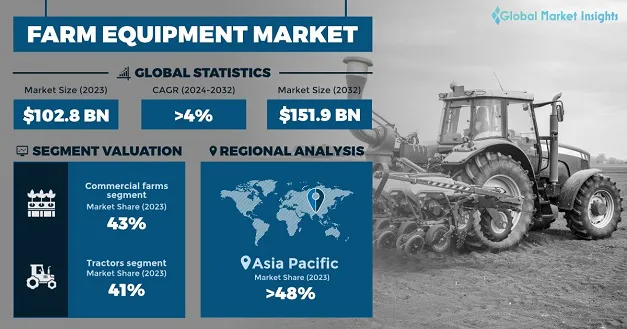Imagine the ease and simplicity of farm work, where plugging in a tool is as easy as charging your phone. Battery-powered farm tools promise just that, offering a cleaner, quieter, and more convenient alternative to traditional equipment.
But as you stand amidst rows of crops or tend to livestock, you might wonder, “Are they really worth it? ” You’re not alone in this contemplation. The allure of these modern tools is strong, but there’s more to consider than just their sleek design.
Will they meet the demands of your daily tasks? Can they withstand the wear and tear of your farm’s unique environment? And most importantly, will they save you time and money in the long run? This article dives deep into the heart of these questions, giving you the insights and information you need to make an informed choice. As you read on, you’ll discover the potential benefits and drawbacks, backed by real-world experiences and expert opinions. Whether you’re looking to upgrade your toolkit or simply curious about the latest in farming technology, this exploration is designed to help you weigh your options carefully. Keep reading to find out if battery-powered farm tools are the game-changer you’ve been waiting for.
Rise Of Battery-powered Farm Tools
The farming industry is witnessing a significant shift. Battery-powered farm tools are gaining popularity among farmers. These tools promise efficiency and sustainability. Traditional fuel-powered equipment has dominated farms for years. But now, battery-powered alternatives are making their mark. Let’s explore this growing trend.
What Are Battery-powered Farm Tools?
Battery-powered farm tools use rechargeable batteries. They replace traditional fuel engines with electric motors. These tools include chainsaws, mowers, and trimmers. Farmers appreciate their lightweight and ease of use. They offer a cleaner way to maintain farms.
Benefits Of Battery-powered Tools
Battery-powered tools reduce noise pollution. They are much quieter than fuel-powered ones. This benefits farmers working close to residential areas. These tools also produce fewer emissions. This makes them environmentally friendly. They help in reducing the farm’s carbon footprint.
Cost Considerations
Initial costs for battery-powered tools can be high. But, long-term savings are possible. They require less maintenance compared to fuel engines. No need for regular oil changes or fuel refills. Their battery life is improving with technology. This increases their value over time.
Performance And Efficiency
Modern battery-powered tools offer impressive performance. They match, and sometimes exceed, fuel-powered tools. Their efficiency depends on battery capacity. Newer models have longer run times. This ensures they can handle demanding farm tasks.
Challenges And Limitations
Battery-powered tools have some challenges. Limited battery life can interrupt tasks. Farmers might need spare batteries for longer work. Charging infrastructure may not be available everywhere. This can be a hurdle for remote farms. But advancements are addressing these issues.
The Future Of Farming Equipment
The future seems promising for battery-powered farm tools. Innovations are improving battery efficiency. More farmers are adopting these tools. The trend points towards sustainable farming practices. These tools are set to play a significant role in modern agriculture.

Comparing Performance And Efficiency
Battery-powered farm tools offer quieter operation and less maintenance compared to traditional tools. They are more environmentally friendly, reducing emissions. Farmers may find them cost-effective in the long run due to lower fuel expenses.
Are battery-powered farm tools the future of farming? Many farmers are pondering this very question. With advancements in technology, these tools promise better performance and efficiency. But do they deliver on these promises? Let’s dive into the details and find out how they stack up against traditional tools.Performance: Power And Precision
When it comes to farming, power is essential. Battery-powered tools have made significant strides in mimicking the strength of gas-powered tools. Consider the latest battery-powered chainsaw; it can cut through thick branches with ease, and you won’t have to deal with the noise or fumes of a gas engine. However, are they precise enough for delicate tasks? Many users report that these tools offer more control, allowing for smoother cuts and better handling. Precision is key when you’re trimming hedges or pruning fruit trees.Efficiency: Time And Energy Saving
Efficiency isn’t just about getting the job done; it’s about how quickly and effortlessly you can do it. Battery-powered tools often boast longer run times, especially with newer lithium-ion batteries. You might find yourself charging less and working more. Think about your last experience with a gas-powered tool. How much time did you spend refueling? Battery-powered tools eliminate that downtime. Just swap batteries and continue working without missing a beat. Plus, they tend to be lighter, reducing fatigue during long hours in the field.Environmental Impact: A Greener Choice?
Does the environmental benefit of battery-powered tools justify their cost? They produce no emissions during use, which is a huge plus for eco-conscious farmers. Imagine working in a greenhouse or a barn without any exhaust fumes lingering around. Additionally, many manufacturers are focusing on recyclable batteries, reducing waste and promoting sustainability. It’s not just about what these tools can do for your farm, but also what they can do for the planet.Cost-effectiveness: Are They Worth The Investment?
Are battery-powered tools a worthwhile investment for your farm? Initially, they might seem more expensive. However, consider the long-term savings on fuel and maintenance. Gas-powered tools require regular tune-ups, while battery-powered ones need minimal upkeep. Think about where you can allocate those savings. Maybe towards more efficient irrigation systems or expanding your crop variety. The cost-saving potential might surprise you. Are you ready to make the switch, or do traditional tools still hold a place on your farm? The choice is yours, but it’s clear that battery-powered farm tools are making waves in modern agriculture.Environmental Impact
Battery-powered farm tools offer a cleaner alternative to gas-powered equipment. They reduce emissions and noise pollution, benefiting both the environment and farm workers. Considering their efficiency and reduced carbon footprint, they present a valuable option for sustainable farming practices.
Switching to battery-powered farm tools can have a significant environmental impact. With traditional fuel-powered equipment, farms contribute to air pollution and greenhouse gas emissions. Battery-powered alternatives offer a cleaner option, reducing the carbon footprint and helping you run a more sustainable operation. But are they truly worth the investment?Environmental Benefits Of Battery-powered Tools
Battery-powered tools produce zero emissions during use. This means you can work without adding harmful pollutants to the air. Cleaner air benefits everyone, from farmworkers to the surrounding community. These tools also reduce noise pollution. Imagine working in a quieter environment where you can hear the birds instead of a roaring engine.Battery Production And Disposal
While battery-powered tools are cleaner during use, battery production and disposal have their own environmental concerns. Manufacturing batteries requires mining for materials like lithium and cobalt, which can harm ecosystems. Proper disposal is crucial. Recycling programs can mitigate some negative impacts, but they aren’t available everywhere. How can you ensure your tools contribute to sustainability throughout their life cycle?Energy Source For Charging
The environmental impact also depends on how you charge your tools. Charging with renewable energy sources like solar or wind power can enhance the eco-friendly benefits. If your farm relies on fossil fuels for electricity, the environmental gains may be less significant. Consider investing in renewable energy solutions for a more sustainable operation.Comparative Analysis With Traditional Tools
When comparing battery-powered and fuel-powered tools, think about the long-term environmental costs. Fuel-powered tools rely on non-renewable resources and emit pollutants. Battery-powered tools, despite their production impact, offer cleaner daily operations. Imagine a future where your farm contributes to a healthier planet. Is the environmental benefit worth the initial investment in battery-powered tools?Ultimately, your decision could shape not only your farm’s footprint but also the broader agricultural landscape. How will you choose to make your impact?

Cost And Long-term Investment
Battery-powered farm tools are gaining popularity in agricultural settings. They promise efficiency and eco-friendliness. Yet, a key question arises. Are they a wise cost and long-term investment?
Cost Analysis
Battery-powered tools often have a higher upfront cost. Traditional tools tend to be cheaper initially. This can be a hurdle for many farmers. Yet, these tools may save money over time. They require less fuel and maintenance. Reduced operational costs balance initial expenses.
Maintenance Expenses
Maintenance is simpler with battery-powered tools. Fewer moving parts mean fewer breakdowns. Repairs are less frequent, saving time and money. Routine checks are still necessary, though. Batteries require care to last longer. Proper storage and charging are essential.
Durability And Longevity
Battery tools can have a long lifespan. Quality brands offer durable options. Initial investment pays off with long-term use. Durability varies by brand and model. Research is crucial before purchasing. Choose products known for longevity.
Energy Efficiency
Battery tools are energy-efficient. They consume less power than fuel-based options. This reduces environmental impact. Energy savings contribute to cost-effectiveness. Consider energy ratings when buying. Efficient models offer better returns.
Resale Value
Resale value is another factor to consider. Quality battery tools maintain their value. They can be sold at a good price. This offsets initial costs over time. Regular maintenance helps preserve value. Keep tools in good condition for better resale.

Conclusion
Battery-powered farm tools offer both benefits and drawbacks. Their eco-friendly nature attracts many farmers. Quieter operations mean less noise pollution. But their cost might concern budget-conscious individuals. Some worry about battery life and charging time. Yet, for small farms, these tools can be ideal.
They reduce emissions while providing decent power. As technology improves, battery tools may become more viable. Each farmer must weigh the pros and cons. Consider farm size, budget, and environmental impact. Choose wisely based on your needs. Battery tools hold promise for future farming practices.



